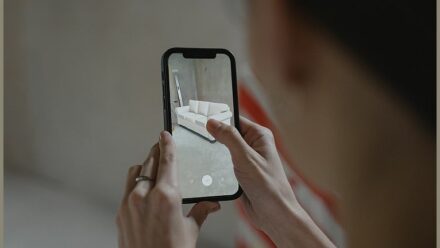
Margré is a recovery coach who offers WRAP trainings and a workshop ‘Working With Your Own Experience’.
“My story starts in 1967. That year I was born in a farmer’s family in the North of Holland. In that same year, my grandmother passed away. She had moved to our province in 1910, away from the region that is known as ‘ the Bible belt’. Strict pastors and religious orthodoxy were common here. And still are. The thunderous preaches in the church scared my family members for generations. Unfortunately.
From a young age, I always felt the urge to be free. Yet the strong social norms echoed in my head and smothered me. We had love for each other, but the feelings of guilt made me submissive. Deep within me, I was creative and active, and bright enough. Yet I suffered from the thought that I was a bad person. And a woman, to make things worse. I felt shame. My personal development stalled, and I started to perform below my level, cut off from my true self.
I went through obsessive loves and failed attempts to complete secondary school with my new-found independence. Meanwhile, I was working as a management assistant.
I got a boyfriend, we were living together, dreaming of starting a family
But then our relocation to the south of Holland triggered my anxiety and feelings of panic. The horror years started. The next two years were marked by mental suffering. Lightly at first, but with gradually worsening symptoms. The struggle to survive dominated my thoughts, as if death was right on my tail. I felt as if I failed in everything. I had to escape. Like I was sinking in quicksand, all the while handling everything on my own. I went back to my old friends. Moving home, and again…
I had regular talks with a psychologist, mainly about the effects of my relocation. I was desperate to get a diagnosis: an anxiety and panic disorder. But still it made no difference to me. A meaningless label. I placed the causes of my struggles outside myself. I wanted to be who I always felt I was. And it exhausted me.
My boyfriend and I got married and we were hoping to have children.
While reducing my medication to prepare for my pregnancy, the withdrawal symptoms came
Within one month, I fell into suicidal thoughts. All hell broke loose. This was clearly serious. We called upon mental healthcare, starting with a four-days-a-week psychotherapy course for 18 months. A new diagnosis: generalized anxiety disorder and depression. That was very confronting. My life was gone. I wanted my old self back! I fought heavily against the stigma of being a psychiatric patient. A fight that is still going on today.
Nonetheless, the clinic did provide me with a place to work on myself. Regular jogging relieved me from my destructive thoughts of death. Also of great help were my strong companions, who dared to experiment together to create new ways of interaction. No longer did I see recovery as something outside myself: it was my own burden to carry. That realisation helped me a lot.
I expected to become free of complaints after this. My family asked if I was already doing any better now I was in therapy. The answer was no. I did not dare to admit this. It all went too slow for me. Thoughts of death were still occupying my mind. I wanted to be normal. Did not want to disappoint my family, because I thought I was causing trouble for them as well. I was ashamed towards my family, who I comforted or shunned. When care workers asked, I answered I was doing well. They are easy to fool. We never spoke the same language, as they could hardly understand me.
After 18 months, nearing the end of my therapy, I discussed my desire to have a child with my psychiatrist. This desire was approved and again I started to reduce my medication.
The withdrawal symptoms returned, but this time they were more serious. The manufacturer of my medication (Seroxat) confirmed that quitting could cause suicidal thoughts. So there I was…
I went to a mental institution against my will. Four times I tried to commit suicide
My hope was that the psychiatrist had an idea of my process, because I had been traumatised by medication before. I decided to go my own way.
In 2002, I saved my life by starting with breathing therapy. This proved to be the escape from my suicidal tendencies. The therapy was discouraged by my care workers, because I was prone to addiction. Yet this was my own personal choice. I noticed how, over the course of three weeks, I was recovering: my feelings returned, more and more. My consciousness was clearly returning. Feeling that I had my own free will.
This happened in a pace that my own body defined, instead of my care workers or family. There was a connection between myself and my disorder. It became a story, my own personal story.
My actual recovery started here. By my own design
What I noticed was that my breathing therapist set an example; one I could work towards. She knew what she was talking about: fear. I did my best to prove I actually was somebody. I took her advice seriously. Two months later, I left the clinic. Medication had now started to work against me. In this phase, they suppressed my emotions, while I wanted nothing more than to feel. Feeling means understanding yourself.
I exercised, I wrote, I breathed and I read. I rested, studied, mourned, cried. Living life in full awareness. The time had come to reclaim my own place at home.
I felt I had a deep fear of being abandoned by my husband, of being rejected. But I also struggled with feelings of guilt about what I had put him through. This caused me to push him away and ignore him. I wanted to solve this problem and took the risk of showing him my fears. We agreed to have a daily five minute talk, in which he would not suggest any solutions. My goal was to show him he could trust on my own strength.
It succeeded, although slowly. He became all ears to me. And as a result, I felt heard and recognised. For the first time, I was able to crawl out of the isolation my disorder had put me in.
The diagnosis held me back in this stage. The label became like a straitjacket
I actually wanted to use my disorder as a means to an end. Namely: being able to think freely. By doing so, I managed to turn things around. I started exploring philosophy and spirituality. The teachings of spiritual leaders expanded my knowledge of the workings of the subconscious. Breathing meditations strengthened me mentally and created room in my body. I was healthy, responding sensitively to a world that failed to offer a full picture of what it meant to be human. That complete image was what I was missing in medical science.
In this picture of being human, vulnerability is also a strength. This was how humans were meant to be, in my view. I started to get reimaginations of a religious nature, spontaneously. My anxiety attacks changed shape, while my body was longing for healing. For cleansing. The black-dressed pastors had filled me with their indoctrination for generations on end. With their conviction that people were sinful at their core, thereby detaching them from their true desires and needs. To become slaves to someone else’s system. I realised how that system had broken my own will. I had been deprived of my soul.
Meanwhile, my condition kept shifting shape. From social phobia to agoraphobia, from hypochondria and even further towards an obsessive compulsive disorder and paranoia. Care workers started to give up on me.
Yet to me, my recovery was improving with great strides. I felt an overwhelming inner strength as result of the breathing techniques. This also released the tyrannical voice in my head. An angry god, a despicable narcissist. This duality became clear to me. A voice was possessing me. Like a judge who could only condemn me. This explained all my fears. I seemed addicted to punishing me with my own negative thoughts. It became more and more clear to me what I could not control. And that powerlessness became gradually acceptable.
There is no psychology in religion, and no religion in psychology
I had to form my own opinion about the God that I was told about. And I did. This God turned out to be obsessed with power. And I could be my own god. One counsellor proved to be a sound board, allowing me to use him as I saw fit. That helped me a lot! He followed me on my journey. My delusions became transparent and detached. My own evilness was also put up on the table. There was a daemon in my head, one I wanted to defeat. Not by fighting him, but the opposite: to embrace him and give him my attention.
I succeed, but meanwhile my breathing and meditating habits started to get out of hand. They became an addiction, on which I spent hours every day. No one could hold me back and I felt that my life depended on it. I was unable to stop and after a year of training, it all came down like a house of cards. My life’s work turned on me and what once was a source of power, now pushed me into a downward spiral. I could no longer cry, stopped speaking, sleeping, feeling and thinking. I felt like I was dragged into a large void where no one else goes. Psychotic. The old Margré was gone and I transformed into another person. Again, I became suicidal. And although I realised it, I was powerless to stop it.
A period of five months followed in which I was healing in a psychiatric ward. In my perspective, I was not being present there myself. I was merely a shell. Nonetheless, full and healthy consciousness is never completely lost.
The diagnosis was wrong, because I could not explain how heavily the meditation impacted my recovery
As a result I did not receive proper treatment. What helped me, was one antidepressant that had worked before. In three days, I was connected to my own self-built inner power source. Finding that entrance was wonderful. From then on, I was free of complaints and cured from my pathology. I took some time to regain my strength and put the last 15 years into perspective.
I am still working on this recovery, and running my own company is only a part of this process. I am also working on the relation my partner. He also wants to commit himself to become a family experience worker. Being able to accept my history as a psychiatric patient is difficult, and only started since my issues have disappeared.
These conditions have also enriched my life a lot. They helped me become the person who I secretly always hoped to be. And for this, I will always feel a deep gratitude toward life.”
Margré Knip offers anxiety management and recovery training, workshops and guest lectures in recovery support care.
Read more about Recovery:




Comments: